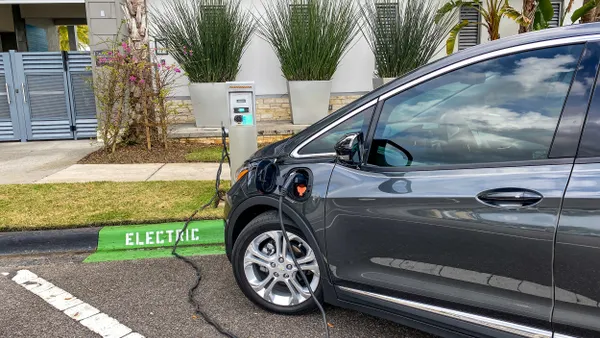Dive Brief:
- Ride-hailing services could lead to lower instances of reported sexual assault in cities, according to a study to be published in the journal of Information Systems Research.
- Researchers found that amid a 1% increase in New York City Uber pickups in 2015, reported cases of sexual assault dropped by as many as 48, based on an analysis of company transaction records and neighborhood crime reports. The more ride-hail pick-ups and drop-offs take place in a neighborhood, the less likely a rape will be reported in the same area, researchers said. The research did not examine links between ride-hailing and sexual assaults outside of New York City.
- The paper, entitled "The Deterrent Effect of Ride-Sharing on Sexual Assault and Investigation of Situational Contingencies," found that ride-hailing can help reduce the number of reported rape cases in areas not served as well by public transportation or taxi pick-up points; in areas with a larger percentage of non-White residents; and in places that serve alcohol on Friday and Saturday nights.
Dive Insight:
The group of researchers, made up of academics from UNC-Greensboro, Temple University, the Korea Advanced Institute of Science and Technology and others with no financial involvement from the companies, said there is a correlation between ride-hailing service and the reduction in reported rape cases because it "helps potential vulnerable victims by moving them to safer places (home) as quickly as possible."
"Waiting for a taxi on the street, walking eight blocks to a subway station or even riding the subway home alone may be undesirable options late at night, but ride-hailing affords travelers with an option to escape such a situation," report co-authors wrote in an article about the study for TechCrunch.
Ride-hailing companies have faced severe criticism over the years due to incidents of sexual assault and violence involving some of their drivers, with a congressional committee examining that issue and others in a hearing last year. In response, the U.S. House of Representatives in July passed Sami's Law, a bill that requires ride-hailing companies to implement a digital driver verification system for passengers to use when entering a vehicle that has yet to be taken up by the U.S. Senate.
That legislation, which passed by voice vote, was named for Samantha Josephson, who was killed last year in Columbia, SC by a man pretending to be her Uber driver.
Despite that past criticism, the paper argues that ride-hailing has still helped bring down cases of sexual assault. That is due in large part to the real-time and location-specific “matching of supply (drivers) and demand (passengers) through Uber’s mobile platform,” the authors wrote, in addition to dynamic pricing, which allows drivers to respond instantly to market demands.
The researchers said this shows that public safety and available transportation options are inherently linked, and that having reliable, convenient modes can help deter crime. Indeed, the paper said microtransit pilot programs that help fill transportation gaps by offering on-demand service to and from transit stops late at night can help as a crime deterrent as it addresses people being alone in potentially risky situations. It also drew parallels to safe-ride programs for students on and around university campuses, some of which have existed for years.
And while the researchers acknowledged that ride-hailing companies must remain vigilant about the safety of their riders and drivers, there are public safety benefits for the service being offered in cities around the world.
"Ride-hailing drivers can be dangerous people," Pang and Park wrote. "We're certainly not saying that they’re not committing crimes — however, the good people who work for Uber or Lyft might also be helping to keep the innocent away from other potential dangerous people, too."
CORRECTION: This story has been updated to more accurately represent the findings of the report.












